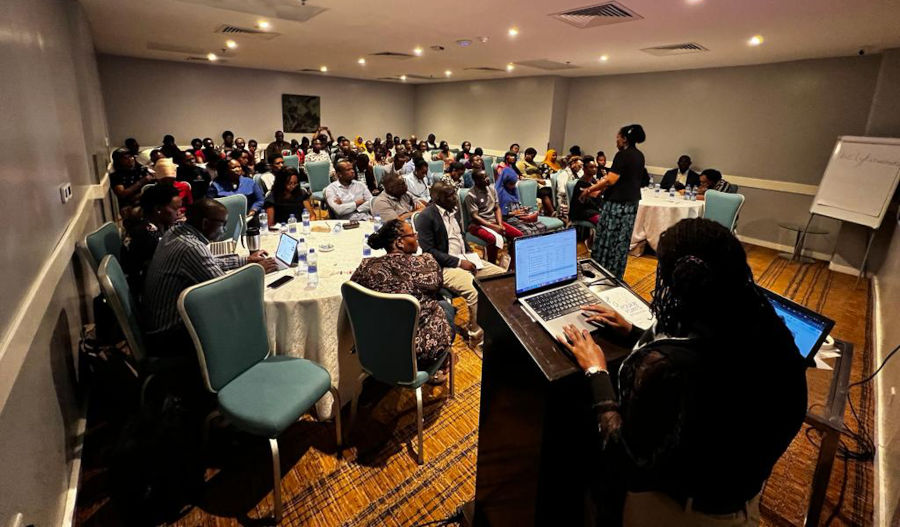The Tatua Digital Resilience Centre hosted a one-day, in-person training as part of the Forum for Internet Freedom in Africa (FIFA) in Dar Es Salaam, Tanzania, with the aim of equipping board members and senior leadership of Social Justice Organizations (SJOs) with essential skills and knowledge to navigate the digital landscape and bolster their organizations’ digital resilience. This training was driven by the growing reliance of SJOs on technology and digital platforms for their work, while simultaneously recognizing that many of these organizations have not fully grasped the extent of their digital dependency or the opportunities and risks associated with the digital environment for their causes.
The training held at Four Points by Sheraton, Dar Es Salaam was facilitated by KICTANet together with Tanzania Human Rights Defenders Coalition, and the Africa Internet Rights Alliance (AIRA).
Approximately 80 attendees representing 44 organizations participated in the workshop. These organizations varied in size and focus, covering a wide range of social justice issues including economic empowerment, human rights, education, climate change, and more. The majority of the organizations were based in Tanzania, with a few from Kenya and Uganda. The workshop exceeded expectations, with over 80 attendees compared to the expected 30 participants. This demonstrates a keen interest from SJOs in the topic of digital resilience.
The program was well-received, with participants finding the presentations clear and engaging. However, language limitations were observed due to the mixed audience, as most presentations were conducted in English, potentially limiting interaction for some participants who were more comfortable with Swahili.
Participant Interaction.
The workshop saw active participation, particularly during interactive sessions like the morning game and the afternoon case study. This engagement extended beyond the allocated time, indicating a high level of interest and enthusiasm. Participants were eager to learn and sought solutions to real-world issues faced by their organizations.
Results of CheckIn Quiz.
A check-in survey conducted before the training revealed the following key insights:
- The majority of organizations were relatively young, with approximately 71% being small and 18% medium-sized.
- Human rights, youth, women, health, and civic education were the predominant areas of operation.
- The majority of participants felt that their expectations were met well and expressed a need for various types of support, particularly in the areas of policy development, technology, infrastructure, and cybersecurity.
- A high percentage of participants believed they needed to continue building their capacity in the field of cyber resilience, primarily to acquire technical skills.
- Participants showed a strong understanding of cyber risks, particularly related to financial losses and the loss of sensitive information.
The workshop was well-promoted on social media and received positive feedback from participants. It was suggested that future iterations of the course require a longer duration for comprehensive coverage and increased interaction. Participants also expressed a desire for more localized support and engagement with experts.
In conclusion, the workshop in Dar Es Salaam was a success, demonstrating a strong interest in building digital resilience among social justice organizations. It provided valuable insights and opportunities for improvement in future training sessions, reinforcing the need for continued capacity building in the field of cyber resilience for these organizations.

